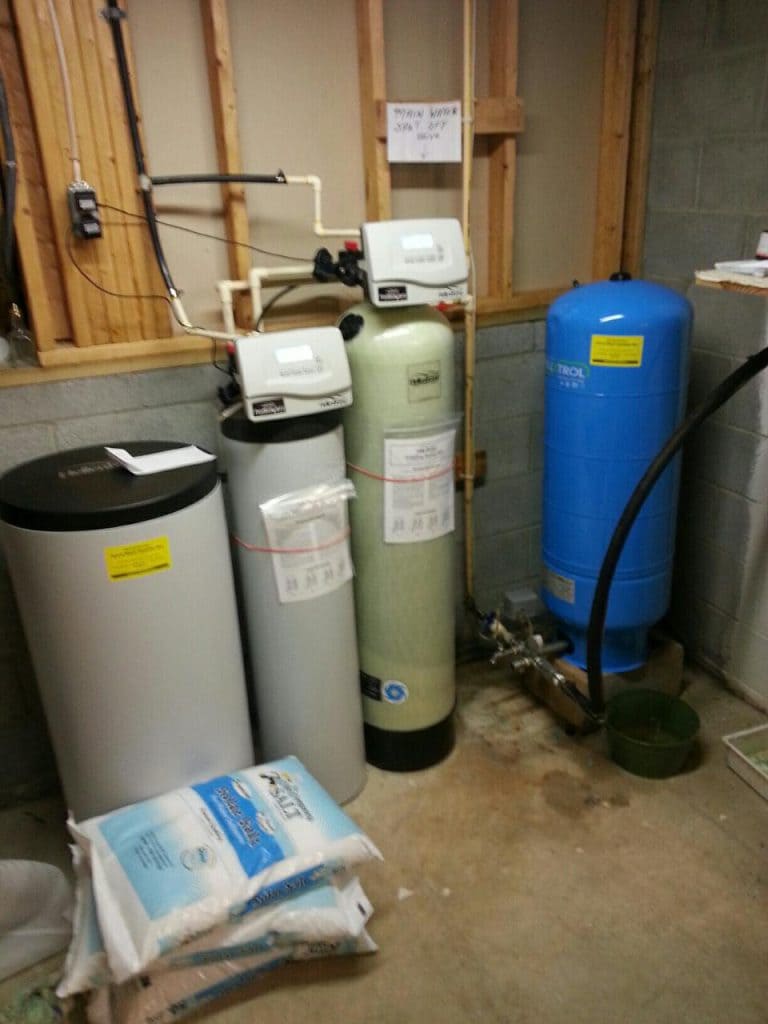Water softeners and water neutralizers may sound interchangeable, but these two devices do two completely different things for your home. Water softeners remove the minerals which cause water to be hard, whereas water neutralizers increase pH levels of your water to make it less acidic. Here’s more on differences between a water softener and a water neutralizer:
What does a Water Softener Do?
A water softener is used to remove the minerals which create “hard water”. Water that is “hard” contains excess minerals like calcium, magnesium, and sometimes iron. Without getting too technical, the presence of these minerals makes it so other substances have a harder time dissolving in water. The most common example is soap not dissolving well in hard water. A water softener removes calcium, magnesium, and iron to help your water become more “soft” and better dissolve soaps and detergents.
What does a Water Neutralizer Do?
A water neutralizer is used to raise the pH of household water to an ideal level. The pH of water should be somewhere around 6.5-8.5 in your home. If the pH is more acidic, then this can cause damage to plumbing and household water appliances. To raise the pH level, a water neutralizer will either use sodium carbonate or calcium and magnesium to neutralize the water’s pH.
What is the difference between a Water Softener and a Water Neutralizer?
The difference is simple. Water softeners get rid of hard water and water neutralizers help to keep your water at an acceptable pH level. To determine which of these two water systems you need for your home, perform a simple water test, or have a local water systems specialist visit your home today.
Are you in need of a water system specialist in Maryland? R & G Water Systems carries, installs, services, and repairs water treatment and conditioning systems for residential and light commercial application. Contact R & G Water Systems today for a free consultation.

